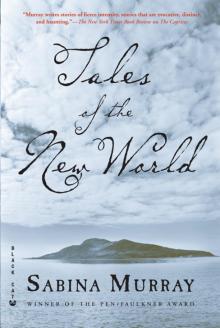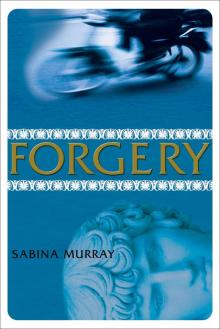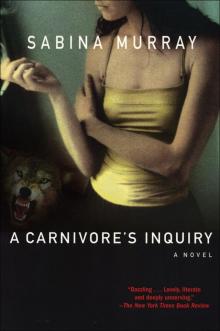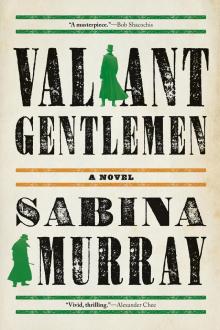- Home
- Sabina Murray
The Caprices Page 5
The Caprices Read online
Page 5
“This, sir?” Harry shook his head. “The lesser part of honor.” Which was indiscretion.
Berystede stiffened. “You should put some ice on it,” he said.
Harry nodded and continued inside.
How was Harry to know that at the same time Tunsdale was insisting that he was Welsh, Berystede and his wife had finished off a monumental, tight-lipped row. When Harry was struggling back onto his horse, Mrs. Berystede too was mounting hers, taking off for an angry moonlight ride across the fields. While Harry was passed out in bed with his servant easing off his boots, Mrs. Berystede had just pitched off her horse while flying over a ditch. When she finally returned home she was cut, muddied, and humiliated. She refused to offer an explanation. Berystede had not slept that night and the sight of Harry, smelling distilled, handsome despite his obvious lack of sleep, strong, young, and vital, had stirred his deepest insecurities.
And Harry’s explanation for the state of his eye had planted the seeds of suspicion.
Tenko, Japanese reveille, came at the end of the night. Changi was run on Japanese time, even though Singapore was an hour and a half behind. Harry was dreaming of some mountain-edge horse game where the players leaped one after another, gleefully, spiraling downward and never hitting bottom. He rolled to his feet out the side of the cot as Sergeant Itsumi plowed down the row of the sleeping men, pounding their shins with his flashlight. Today was a lucky day because all the men managed to get to their feet. All had survived the night. Outside, the sky was just starting to glow with the coolest, most distant light. Bango started and the men counted off dutifully in Japanese: ichi, ni, san, shi, go . . .
“Roku!”
. . . shichi, hachi, ku, ju . . .
Berystede was not a dream. Harry had seen him, recognized him, despite three years’ wear and alteration. Probably Berystede was in the hospital. Harry had watched him walk from the truck toward the assembly area until he disappeared behind the edge of the barracks. He had watched the determined limp, the pained grimace, and felt sad to see him so low. Only the major’s supposed death had made Harry reconsider his contempt, but now . . . Berystede was old and weak, neither dead nor alive, and Harry was unable to articulate his emotion.
After breakfast, Harry went to the hospital to have the doctor dust his genitals with sulfur. The hospital was a long hut with a few low cots and a number of mats laid edge to edge. Harry paused outside the door, arrested by the metallic stench of warm blood. At the screen, two dozen flies buzzed angrily to get in, while just inside the same number were trying to escape. The major was indeed there, lying on a mat, one arm thrown out onto the floor, the fingers curled in a loose fist. Harry watched the major sleep as he endured the stinging shock of the sulfur and the doctor’s sympathetic fanning, which the doctor performed with his broad-brimmed hat.
“Open your mouth for me,” said the doctor.
Harry obliged.
“Jesus Christ. You’ve still got all your teeth. Have you been eating insects?”
“Yes, sir, per your recommendation.” Harry leaned in and whispered, “The major, is he all right?”
“I’m afraid not. It’s a miracle he made it here.”
“Can I talk to him?”
“Do you know him?”
“Yes.”
Harry went to squat beside the major’s mat. The flesh on Berystede’s face had been eaten away and his lips were dry, pulling up on his teeth so that his gums were exposed. When the major breathed, a shallow, rasping sound escaped his mouth, the same sound a shell made when you put it to your ear. Clearly, Berystede was sleeping, but his eyes were open a crack and the whites showed, although the irises quivered into view.
“Major Berystede,” whispered Harry, “it’s Lieutenant Gillen, sir.”
The eyes shuddered open.
“Lieutenant Gillen,” he repeated.
Berystede took a deep breath, “Harry. You look well.”
Harry nodded.
“So,” the major’s face relaxed, “I finally found a club that would take us both.”
• • •
Malaya had been an unqualified disaster.
The 11th Indian were garrisoned at Sitra on the west coast of Malaya, after pulling back from the Siamese border. They were to hold the Japanese here, where there was a road heading south. The Japanese force was inferior in numbers and, Harry had been told, in strength. The Japanese were all nearsighted. They couldn’t aim a rifle. Their legs were bowed so that they scampered when upright in a half-evolved netherworld between ape and man. At their tallest, the Japs hit four feet. They had bucked, protruding teeth. They spat when they talked. Fighting them was presented as an indignity to be suffered. Harry wondered that they hadn’t left for Malaya armed with a sack of rat poison. The first night, when they were still organized with the men sleeping in their regimental rows and a separate officers’ latrine, Harry had been unable to sleep. The English were wrong about the Japs. They were as formidable as any Germans, Boers, or Afghans. Harry knew this, just as he knew that the Indian part of his blood boiled equally with the British.
On December 12, 1941, the soldiers of the 11th Indian, after suffering major losses, began their retreat from Sitra. Three days later, the 11th Indian had been pushed south forty kilometers to the village of Gurun. The supposedly pro-British villagers had refused them food and while Major Berystede made a ridiculous speech about crown and colony, Harry, Tunsdale, and the others “confiscated” as much food as they could. Harry no longer knew whom he was protecting or even why he was fighting, aside from some abstract sense of right and wrong, British perfection and Japanese barbarism.
Two days later, a flanking move by Japanese ground forces had split the British and Commonwealth troops up the middle. Japanese air strikes had forced Harry and the others into the jungle. The 11th Indian was lost. Harry was now one of a band of forty men—separated and hungry—trying to navigate back to the coast. For four days they retreated through solid, snake-infested jungle. While they were wading through a waist-deep creek, sunk to the knees in mud, a steady rain of bullets began to fall and Harry had watched more than twenty men die right there. He’d watched their bodies sinking slowly. The Japanese were silent, efficient, and invisible, nothing more than a singing bullet and rustle of jungle greenery.
None of the 11th Indian were trained in jungle warfare. Some of the older men had been in Shanghai, but their withdrawal from the “Paris of the East” in 1937 had not prepared them for this. Harry had thought through the surrender of Shanghai. If the Japanese were so insignificant, then why had the British surrendered? He had heard other officers explaining this embarrassment away, saying that Hong Kong was more valuable, that the British did not want to provoke the Japanese when the naval base at Singapore, Changi, was still in the process of construction. But the truth of the matter was that the British had no more right to be in Shanghai than the Japanese and with Chiang Kaishek agitating against imperial forces—Japanese and British—withdrawal was the only sensible move. At least an organized, urban withdrawal was something that the Indian army was well equipped to execute.
The Australian troops, also there at the request of Mother England, had outright laughed at Harry and his men, their kits, their swords, the ceremonial panache with which they approached soldiering. The Indian army was trained to give and take orders, but in the jungle you could not see or hear the commanding officer and the situation changed so rapidly that one needed initiative and confidence to act independently, two traits that had been systematically drilled out of the soldiers’ mindset. The jungle made the men crazy. The sky only revealed itself in slivers, the invisible sun only served to raise steam into the air. Harry’s proud sepoys, mostly from the plains of the Punjab, were reduced to struggling on all fours.
Major Berystede led what was left, maybe twenty men, up a rocky creekbed. Progress was slow because of the injured, and Harry was relieved when after four hours’ march, the ground began to level out. Through the dense greene
ry ahead, Harry could see bright light, which threw all the great leaves and sinewy vines into relief. They were at the edge of the jungle. When Harry’s platoon burst through the last of the tropical growth, they found themselves at the perimeter of a clay tennis court. It was as surprising as Alice’s tumble into Wonderland. Suddenly the sun shone in an acceptable, general way. Birdsong was loud and lovely, without the crash and startle of branches breaking overhead. Beyond the tennis court was a handsome house with a wide veranda and classic columns. Papaya and banana trees grew in attractive clusters bordered with whitewashed rocks and there was a faint smell of blossoms. The lawn, until very recently, had been meticulously maintained.
Harry stepped onto the court. He listened. The place was completely silent, something that made him uneasy. Major Berystede cautiously peered around. He sheltered his eyes with his hand and squinted up at the house. He seemed lost and Harry knew what was running through his head: he couldn’t even keep track of men he’d lost and didn’t want to make any more decisions that would result in more death.
“I’ll go on ahead,” said Harry.
Harry’s heels sounded lightly on the clay court. Only recently, someone had swept it smooth, because the clay was even except for one disturbed path up through the center. Harry squatted down to look at the tracks—small men’s feet and, if he wasn’t mistaken, cloven, the toes separated, the prints wide.
“Lieutenant Gillen!”
Harry turned.
It was Sergeant Singh, standing not quite at attention, but not quite at ease.
“Come on then,” said Harry, “let’s go find this devil.” Harry got up and they approached the house together, walking in clear sight of whatever had silenced it. The sound of the major’s voice drifted across the court and lawn—soothing and low—as he organized search parties to the right and to the left of the garden. The heat was only just starting and Harry’s mind wandered from thoughts of battle and blood.
“I find it very strange,” said Sergeant Singh, “a lovely house like this in the middle of the infernal jungle.”
Harry nodded, then raised a hand to quiet him. Together, carefully, they mounted the steps. The door hung open on its hinges and when pushed, swung noiselessly inward. Harry followed the arc of it and found himself in a foyer with a parquet floor and a cathedral ceiling. At the top of the curving stairs was a rose window. A small brown sparrow was trapped there and beat itself against the brilliant panes. Beams of light splintered through the glass onto the landing in an exact rose pattern, disturbed only by the bird, whose desperate shadow marred the perfect symmetry. Harry continued to his right, where the sound of an electric fan and some rustling papers asserted itself against the quiet. Together, Harry and Sergeant Singh walked across the waxed floors and through the arch that marked off a library—a white-walled room with a large bay window fitted with velvet bench seats, floor to ceiling shelves with books bound in red leather and blue cloth, an old pukka once used to move air still on the ceiling, and a broad blackwood desk with the electric fan blowing the papers of a ledger to a desperate flutter. And at the desk, wearing the pocket jacket favored in Malaya, his pale hands still resting on the table, was the presumed owner of the house. Harry was surprisingly unmoved. The man was dead, clearly, because the neck terminated in a clean, fresh wound. The man’s head was nowhere in sight.
“I have heard of this,” said Sergeant Singh.
“Yes,” said Harry.
Then the spattering noise of gunfire reached them across the yard, the hearty shouts of men (like a football game), and the screech of a bird.
“Why weren’t you and the major captured together?” Smalls asked. He and Harry were again in line, this time for food. Harry had an old sardine can for a bowl, a spoon cut from beaten tin. The sun was still hot and high. Past the fence, the column of bearers carried out the daily dead, slung between them in sheets. Harry breathed deeply and raised a hand to his forehead.
“Well,” said Harry, “Sergeant Singh and I heard the shots. The Japanese didn’t know we were there. Sergeant Singh and I went out the back door.” Harry remembered the open pit by the clothesline, the little boy flung face up, his mother’s shoeless but stockinged foot. “We were outnumbered. I had an idea that later, when it was dark, the sergeant and I would free some men, create a disturbance.” There was Tunsdale again with his hands tied, towering over his Japanese captor. And there was Tunsdale crumpling, his intestines unraveling onto the wet earth, the bayonet greased with his blood. “We had no opportunity. I thought if we could find more men . . .”
“Well,” said Smalls, “did you?”
“Yes,” said Harry. “And here we all are.”
Harry did not know what had compelled him to visit Major Berystede the last two days. He did not know what comforted him in their uneasy truce.
With the remnants of the 11th Indian struggling on the Malay Peninsula, the major had seen endless opportunities to rid himself of the embarrassment of Lieutenant Gillen and he had taken all of them. More than once Harry had caught the major eyeing him with a look somewhere between fear and guilt. Harry dryly noted that he was being singled out either for heroism or death. Only the hand of fate would make it clear which of these it was to be, so Harry was first at the mercy of a capricious man and, after that, an even more capricious God.
Harry had been ordered to lead a group of men up a slope to a makeshift bunker the Japanese had set into a hillside. The line of greenery broke abruptly to a smooth ascent. There wasn’t much on this side of the hill, but scouts had come back with descriptions of a series of fields on the other side, already strewn with their dead. The major had decided to take the bunker and he had decided that Harry would do it, just as yesterday he had decided that Harry was the best man to run a message to Lieutenant Colonel Lifkin, which involved a good two-hundred-meter sprint through a papaya grove, whose slim trunks and umbrella foliage offered little protection from snipers. Harry tried to control himself, but he hadn’t slept in days and had never been much good at anything but feigned deference. The men were checking their rifles, whispering requests to their respective deities. Harry approached Major Berystede and asked in a low voice, “Excuse me, sir, but I must ask you, are you trying to kill me?”
“Lieutenant Gillen . . .”
“I apologize. A voice inside keeps telling me this is none of my business. But surely it is.”
Berystede was taken aback. “What kind of insubordination is this?”
“Some variety, but at this rate I’ll be dead by sundown, so the chances of my being court-martialed are very slim.”
The major was rattled. He inhaled deeply. “Are you refusing to execute the order?”
Harry thought about it for a minute. “No, sir.”
But despite the major’s best efforts, it hadn’t been Harry’s time. The bunker was empty, the battle already won by the Japanese, the field deserted.
• • •
From the look on the doctor’s face, Harry knew the major was close to death. Berystede’s eyes brightened when he saw Harry, as if all the troubles of the past were gone and Harry was still the handsome horseman, the major his eager patron, and the rumble of war an ugly rumor. Harry squatted by the cot and helped the major drink a little water, which was set on the crate along with the major’s belongings—a worn photo of Mrs. Berystede on a horse, carrying a rifle, and a set of keys, one of which unlocked the liquor cabinet back in the mess hall at camp.
“Harry,” said the major, “what are you going to do when you get home?”
“I don’t know,” Harry said.
“The English will all be gone.”
“I find that hard to believe, sir.”
“Please, call me Edgar.”
“Edgar,” Harry said, “you should probably sleep.”
“I will sleep and sleep and sleep.” The major smiled. His eyes were watering. Harry breathed deeply and took the major’s hand. He’d done this on impulse and once he was holding it, didn’t k
now how to put it down. The major’s hand was cool, despite the thick heat. The bones were thin and fragile, like the skeleton of a bird. His skin already had the look of death. When the major finally drifted off, Harry set the hand down on the cot. Mrs. Berystede stared bravely out of the photograph from atop her horse, in approval of Harry’s loyalty, or maybe deep disapproval of her husband’s succumbing to his limitations. Harry would survive. He had no doubt about that. He would return to see how India had been altered by the war, as he too had been altered.
Outside, the sun slid down the sky, slipping through a cloud, touching the barbed wire. Harry hadn’t told the doctor that the major was dead. Colonel Takashi was watching the sky. Harry thought he detected, in his posture, in the way his hand rested on the hilt of his sword, a nervousness. He realized then that the Japanese were losing. He wondered if Smalls was still on work detail, if he’d made it back to the camp in one piece. Harry watched the dirt road, glowing in the final moments of the day, shining bright like the surface of a river.
There was a precise moment when Harry realized that he’d misjudged his battle. He had wrongly attributed the stakes. After Harry and Sergeant Singh had left the house, they pushed through the jungle for about four hours before hitting a dirt road. They rested there, unsure if they should risk the easy path, or if they should try their odds at surviving in the jungle. Maybe they could tough it out for a couple of weeks until Singapore was secure and the reinforcements arrived. Harry had been standing on the bank of civilization—the road, which gave no hint of its origin or terminus—when he heard a rattling, banging sound coming down the road. There was no rumble of engines, nor the sound of marching infantry, and the very strangeness of the noise froze him in place, until Sergeant Singh dragged him down. At the side of the road with his eyes level to its surface, Harry waited. A half minute later in a whir of pedals and wheels Harry saw a hundred Japanese flying down the road, a tight pack, all heavily armed and fortified. They were conquering the peninsula on bicycles.

 Tales of the New World: Stories
Tales of the New World: Stories Forgery
Forgery The Caprices
The Caprices A Carnivore's Inquiry
A Carnivore's Inquiry Valiant Gentlemen
Valiant Gentlemen